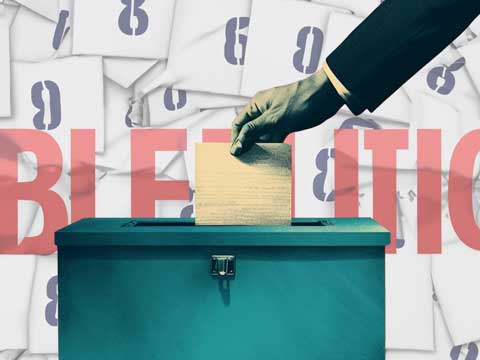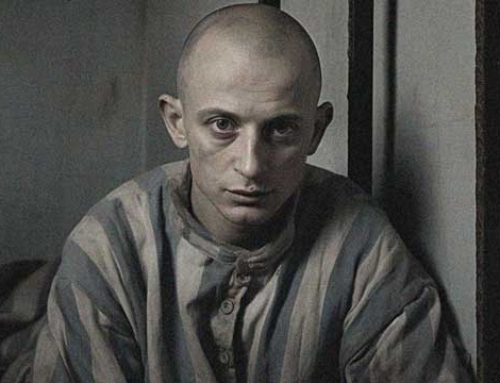Have you ever wondered how solid the foundations of our democracy are? It seems we live in an era where the pillars of our society are under constant pressure. In this blog post, we explore why democratic institutions are not as indestructible as they seem and how we can protect them.
The Fragility of Democratic Institutions
Democracy is like a house built on a foundation of mutual trust and respect for the law. It is not an impregnable fortress, but a structure that stands or falls with the integrity of its building blocks: the separation of powers. This separation ensures that no one person or group holds all the strings. The legislative power makes the laws, the executive power enforces them, and the judicial power judges whether all this happens according to the rules. This system of checks and balances, of control and equilibrium, is the backbone of every healthy democracy.
But what happens when these boundaries start to blur? Imagine if the referee during a football match suddenly takes sides. The game loses its fairness, its essence. The same goes for democracy. If the independent judiciary is pressured to serve certain political interests, then the foundation begins to crack.
Take Poland and Hungary, two countries once celebrated for their transition to democracy. Recently, however, we have seen how their governments have attempted to influence the judiciary. In Poland, for example, judges critical of the ruling party were subjected to disciplinary procedures, and in Hungary, a new judicial system was set up that gives the prime minister more power over the appointment of judges. These are signs that the independence and objectivity of the judiciary are at risk.
These are not distant concerns. They are warning signs that show us how quickly the protective barriers of a democracy can be undermined. They are examples that remind us that freedom and justice are not to be taken for granted, but values that we must actively protect and maintain. Because if the guardians of democracy fall asleep, the foundations of our house can crumble very quickly.
The Role of Education and Awareness in Strengthening Democracy
A thriving democracy is like a garden that we maintain together. And just as plants need water and sunlight to grow, so do citizens need information and critical thinking to grow. Education is the watering can and the sun that make this growth possible. It is crucial that our education not only transfers facts and figures but also teaches the art of critical thinking. It is vital that citizens learn not to take everything at face value but to dig for the truth, to separate fact from fiction.
Imagine living in a society where everyone has the tools to think critically, to ask questions, to look beyond the surface. Where everyone has the skills to actively participate in the democratic process, not as passive spectators, but as engaged gardeners of our common garden. That is the true power of education. It’s not just about memorizing dates or learning laws by heart, but about understanding the value of our freedoms and rights, and how we can cherish and defend them.
Education that teaches us to think and act independently is the key to preserving our democracy. It is how we arm our society against the storms of deception and manipulation. This is how we build a future where our democracy not only survives but truly thrives.
What Can You Do?
You might be sitting in your chair thinking, “What can I actually do to protect our democracy?”
Well, you can do more than you think. It all starts with you: master the principles of democracy and how they are exercised in your country. But don’t keep that knowledge to yourself. Share it with your friends, family, and colleagues. Discuss together the importance of democratic values and how they strengthen the fabric of our society.
And then there’s something powerful that you have in your hands: your vote. Voting is not just a right, it’s a privilege and a powerful tool. At every election, you have the chance to make your voice heard, to choose who represents us and determines the course of our country. Use that opportunity, because every vote counts and every vote is a building block for the future of our democracy. Your vote is your say in how our country is governed, and that’s not something to take lightly. So, take that responsibility, go to the polls, and make your voice heard.
Vigilance as a Weapon: Together Strong for Democracy
Democracy is like a garden that requires constant maintenance. It is not a monument that we erect once and then forget. It is a dynamic process that flourishes with the care and attention of every citizen. It is our shared task to remain vigilant and to intervene when signs of erosion appear. We must never assume that the freedoms and rights we now have will always be there without our commitment.
The lessons from the past are clear: change can happen quickly, and not always for the better. It is our collective responsibility to ensure that democracy not only survives but is passed on to the next generations as a robust and resilient system. This requires us all to be involved, to stay informed, and to be ready to defend our democratic values with the strength of our conviction and the courage of our actions. Together we are strong; together we ensure that democracy is not just a chapter in history books, but a vibrant reality in our daily lives.






